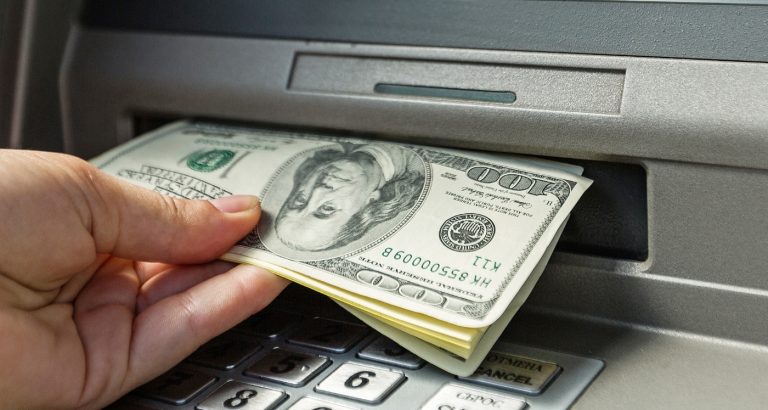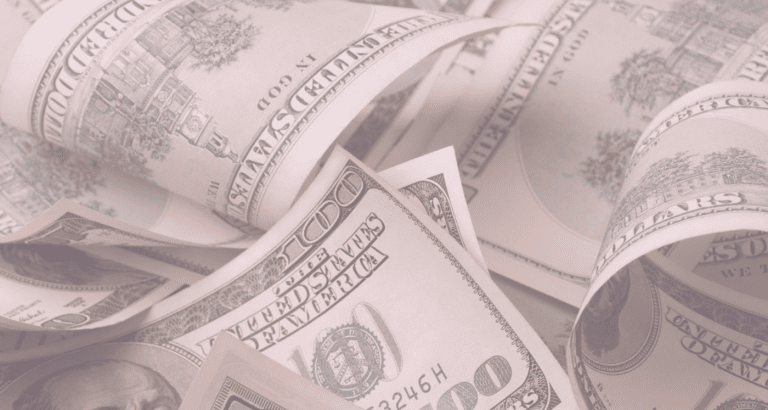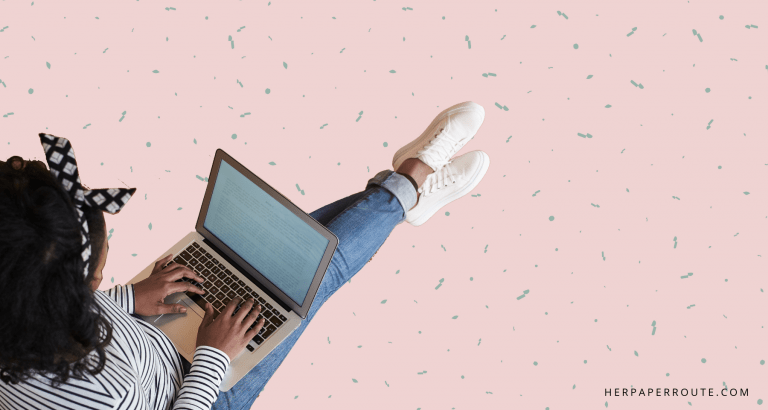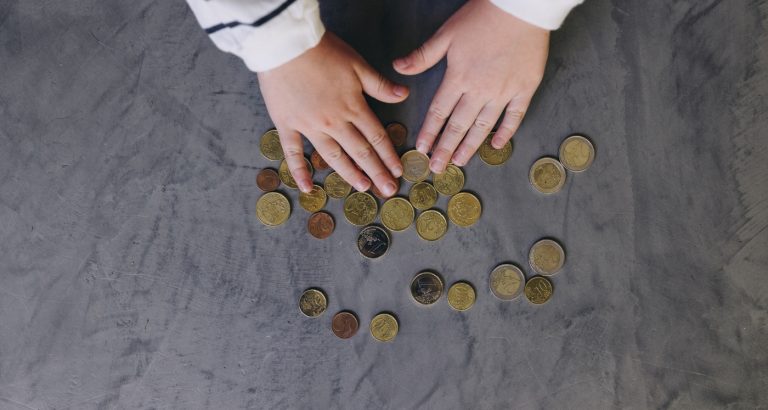What Happens When You Pay Off Your Mortgage? [Step By Step]
![What Happens When You Pay Off Your Mortgage? [Step By Step] 1 Pouring coffee into cup thinking about What Happens When You Pay Off Your Mortgage](https://herpaperroute.com/wp-content/uploads/2021/11/What-Happens-When-You-Pay-Off-Your-Mortgage.png)
Paying off your mortgage is one of the most sought-after and exciting things you can do financially. When you no longer have a mortgage in your life, many things change.
But because paying off a mortgage is challenging and takes time, you may be unfamiliar with precisely what happens when you pay off your mortgage. There are some things to look forward to and other more technical aspects that you just need to be aware of.
As an affiliate partner of various brands and sponsored content, HerPaperRoute may earn commission on qualifying purchases. Disclaimer
It can all be pretty confusing, actually. There are a billion opinions about what you should do when you finally make that last house payment.
Here, I have a straightforward approach. You’ll find a list of the documents you’ll receive and advice about what to do next when your mortgage is paid off.
Read on to see what happens when you pay off your mortgage and get rid of that house payment for good.
What Do You Get When You Pay Off Your Mortgage?
This is a substantial financial loan that is coming to a close, and so there are some things that you’ll receive when you make that final payment. In addition to the excitement of paying off your loan, lower monthly bills, and peace of mind, you’ll receive a few more things to prove that you own your home.
These documents are essential to you proving that you don’t owe any money on your house anymore. Suppose you happen to have paid off your home but find that you’re missing any of these.
In that case, you should look into this immediately and ensure that everything is filed correctly. That way, it is evident that you no longer need to pay your lender back.
Canceled Promissory Note
When you pay off your home loan, you’ll receive a canceled promissory note. Your promissory note lets the lender know that you intend to pay them back for your mortgage loan.
But when you do pay it off, you’ve fulfilled your obligation. That means the note needs to be canceled.
You should receive the note with the words “paid in full” or “canceled” written on it.
Any Leftover Money In Your Escrow Account
Your escrow account is kept open during the life of your mortgage and collects money for insurance and property tax. But when you pay off your mortgage, things change.
You should receive an escrow refund for any leftover money in your account. Now that you own your home completely, your lender has no reason to hold onto money for your taxes or insurance.
They are required to refund you, generally in less than a month.
Grab this free home-buying guide & financial dashboard to help you understand how the home-buying process will affect your money long-term.
How Do I Prove I Paid Off My Mortgage?
When you pay off something as significant and large as a mortgage, you’re going to want proof. What other types of documents do you need to have in order to show that your mortgage is completely gone?
“Discharge of Mortgage” or “Certification Of Satisfactory Note” Filed
You’ll need to get your Discharge of Mortgage paperwork to the Registry of Deeds office. They’ll file this, so there’s a record of it, showing that you have paid off your house.
The Discharge of Mortgage paper may be taken care of by the lender, but you may need to handle it yourself. It depends on your situation.
This helps prove that you’ve paid off your home, and you will need it to get your house deed.
How Do I Get My Title After Paying Off My Mortgage?
First of all, there’s a house deed and a title. They are different things, and it can be very confusing.
A title isn’t a real piece of paper but the principle of owning your home legally. A deed, on the other hand, is the actual paper that proves you own the home.
When you pay off your mortgage, you need to acquire the deed to your home. This proves that you own it.
Since the mortgage lender is the one who holds onto the deed, they should release that to you when you pay off your mortgage. If not, you may need to contact the lender to get the deed.
What Do You Pay After Your Mortgage Is Paid Off?
Usually, your property taxes and home insurance policy are part of your monthly mortgage payment. However, when that payment stops coming, these do not, though there are exceptions for property tax in some cases.
Property Taxes
You will still need to pay property taxes even after you pay off your mortgage completely. Now, instead of going through your mortgage, you need to pay your property taxes on your own.
Your property tax situation can vary depending on where you live. After you pay off your home, you will likely still owe them; you just need to pay them directly.
Ask your county or local government where you send your property tax money when you no longer have a mortgage.
Home Insurance Policy
Technically, you don’t have to have insurance on your home when you pay it off in most cases, but it’s a bad idea to go without it.
Because if anything happens to your house, such as fire, theft, or a flood, you’ll still want an insurance company to cover that. But now, instead of paying this through your mortgage, you’ll need to do it yourself.
First, you need to talk to the insurance company that handles your homeowner’s insurance. Ask them to remove the lender from your policy, and then set up bills to come to you so you can pay them directly.
Obviously, you can switch to a different home insurance company if you prefer. But it may be easier to stick with the one you already have if you like them as it can be less hassle than finding a new insurance company for your home.
Home Maintenance
This is something that you are probably used to paying for already, but it’s easy to forget about. While this was not included with your mortgage, it’s pretty easy to think that when your home is paid off, you’ll never have house costs again.
It’s very likely that as your home ages, it will need maintenance on the roof, the air conditioner, or some other thing once in a while. You should set up a savings fund and stash some money for home maintenance costs. That way, when something comes up, you’ll have what you need to take care of it quickly.
Life After Your Mortgage Is Paid Off?
You did it! You accomplished something that many may feel is impossible. You paid off a huge payment, and now, you are free to do anything you want with the money.
But just because you can do what you like with your money doesn’t mean you shouldn’t do something responsible. There are many ways to spend your mortgage payment when it no longer needs to pay off your house.
Average Mortgage Rates
Your home payment is very likely one of your highest costs per month. It’s a responsibility that most take on for between 10 and 30 years, and sometimes even longer.
A 30-year mortgage will cost approximately $1700 per month after averaging costs. This $1700, more or less, has given you a place to live for a considerable time.
But now that you’re done paying for your home, it’s almost like that money comes back to you. Each month, more will stay in your bank account instead of leaving.
Which begs the question, what should you do with it?
Allocate Your Mortgage Payment Money Responsibly
Sure, spending some of the money that you no longer pay for your mortgage can be exciting, and you can still spend responsibly. Here are some ideas.
Max Out Your Retirement Contribution
This should be easy to do with no mortgage to pay for, and it may not even take all the money you’d usually pay.
The easiest way to do this is to set aside the money you would have used each month for your mortgage and add it straight to your retirement account until you hit your max contribution for the year.
Maxing out your retirement contribution is a fantastic way to set yourself up for the future. The perfect way to celebrate paying off a house is by giving yourself the max amount of money to work with when you hit your golden years.
Invest
With plenty of extra money now that you own your home, you can afford to invest. There are many investment options out there, but you’ll want to do thorough research before setting up any investment. There are mutual funds, stocks, ETF’s, cryptocurrency, index funds, and more.
Find an investment opportunity that is interesting to you and that will give you a good return. You can pick types of investments based on your age and how risky you want to be.
Many people aim to be well-diversified, having some conservative and some riskier investments based on their comfort level. Speak to your certified financial planner for their help in choosing what investments will work best for your goals.
Save for Your Children’s College Education
There are a couple of options for this, and since this process takes several years, make sure to park the money you’re saving somewhere that you’ll gain some interest, or that is made for education funding.
A 529 plan is one of the most popular options but check out my list of the best places to put your college savings for more options.
Save for a Vacation
If you’re covering your essential bills and saving for the future, there’s no reason why you can’t take a nice vacation with some of the money that you aren’t paying for your home.
Why not treat yourself? Go somewhere you’ve always dreamed about and celebrate being mortgage-free!
You might try a cruise or an international trip. Do something big since you’ll have a significant amount of money to save up. Add to your vacation savings over time until you can pay for the vacation of your dreams.
Vacations don’t have to be expensive either. Here are some travel tips from travel experts to give you some ideas.
Add Extra to Your Emergency Fund
Hopefully, you already have some money set aside in case of emergencies. But now that your monthly bills are a lot lower, you can afford to add to this fund.
Even if you have a lot in savings, it’s always a good idea to add a bit more. The more you have saved up, the higher your security if you have something unexpected happen.
Depending on your circumstances, you may even want a 12-month emergency fund.
You might try saving what would have been your house payment for the next 6 months or so and adding that to your emergency fund. It can quickly add up over time and pay for a few more month’s worth of emergency expenses.
Give Money to a Charity
Is there a charitable organization that you care about? Whether it helps the environment or funds medical research, there are a lot of charities to choose from.
Now that you don’t have to make a house payment, you can give back freely to your community and the world.
Try checking out a few charities and finding one you like, or give funds to several at once. You can afford to do a lot more than before, and helping others is a great feeling.
The Value of Owning a Home
When you are a true homeowner, you have no mortgage and you don’t owe anything to a lender anymore. There is tremendous value in this.
Not only is it something that people strive for, sometimes for many years, but it’s also an extremely valuable thing to do to grow your wealth. It can seem at times like all a house does is take money, but actually, in the background, it could be making you a lot more than you think.
This will be especially obvious after you pay it off. Check out what happens with the value of your house over time.
Home Value Increases
Generally, the value of your home goes up over time. There can be some good and bad years depending on the housing market, but overall, your home value is growing.
That’s quite a bit! And it may not be typical, but home value does increase over the years. Owning your home entirely with no mortgage has an excellent return on investment.
You Can Give it as Part of an Inheritance
Paying off your home can also be part of your legacy. You may choose to leave it to a family member in your will.
Or you may move somewhere else but give the home as a gift to someone. Giving someone a home with no mortgage is a wonderful thing.
They can have a place to live without cost or sell it for much more than you bought it for initially. You can build generational wealth in this way and also know that your mortgage payoff will continue to help your family for a long time.
Who Owns Their Home Stats
You might wonder how common it is to buy a home and what kind of people end up owning homes. It’s interesting to know some things about homeowners.
Millennials make up the largest group of homeowners. This means that young generations are still interested in owning a home.
This is great to know because it shows that the housing market is still extremely important, and people are still finding homeownership to be a valuable thing.
Remodels and Add-Ons
As a homeowner, you are able to make changes to your home. This is a considerable advantage over renting.
Not only can you make your home unique and suitable for you and your family, but you may even find that your home increases in value through remodels or adding on to your home.
For example, you could potentially add on an extra bedroom if you need more room in your home. Or, if you find that one of the rooms is outdated, you might add new flooring or a window.
This can make your house more functional and could even increase its value.
Tips to Pay Off Your Mortgage
Maybe you are reading all of this and thinking that paying off your mortgage is very far away for you. Perhaps you just bought a home, refinanced, or are not a homeowner yet.
Don’t worry! You can pay off your mortgage, and you may even be able to do it in less time than you’d think. Here are some ideas for paying off your mortgage.
- Make double payments. If you can afford to, pretend that your home costs twice as much as it really does. Make double payments each month, ensuring that all the extra goes to principal and not interest. You can pay off your home years faster than you would have otherwise.
- Cut out one expense and put the extra toward your mortgage. Is there something you buy a lot of? Or do you maybe have a hobby that is very expensive? If you find that you spend a significant amount on eating out, online shopping, or hobbies each month, try trading that cost. Instead of spending money for that thing, save it and put it towards your mortgage each month. You may be shocked by how quickly this can add up.
- Designate one income to home payoff. If your household has a dual-income, or you work a full-time and part-time job, try using all of one income for the mortgage. Pay what you owe each month, plus extra. You’ll get used to living without the extra money, and you may not even notice how fast you’re paying off your house.
- Make it a game. Every month, see how much money you can spare to put towards the principal payoff of your home. Find ways to be thrifty, so you have as much money as possible for this. Try to beat the amount you paid off last month and make it into a game to keep things interesting.
- Use a chart. Track the progress of your mortgage by using a graph or a chart. Fill in parts of it as you pay off more of your home. You might even draw your house and color it in as you pay off the home to show yourself that now you own two-thirds of the house, and so forth.
- Keep track of your money. Don’t just blindly throw money at your mortgage each month. Keep a spreadsheet and know precisely how much you’ve paid off. Understand how many years are left for the mortgage and how much quicker you can pay it off based on the extra money.
Mortgage Payoff Final Thoughts
There is so much information about mortgage payoff out there, it’s hard to keep track. Remember that you need several documents when you pay off your house.
These include the canceled promissory note, discharge of mortgage, and the house deed.
You also need to remember that you must now pay property taxes and insurance on your own without the help of a lender. You are responsible for home repairs as usual.
There are a lot of benefits to paying off your house, and you can do a lot with the extra money once you do get rid of your mortgage for good. Some ideas for this are to invest, save for retirement, or give to a charitable organization.
House value increases over time, and you can possibly increase it even more with remodels or by renting out your home with no money going towards a mortgage.
While paying off a mortgage doesn’t happen overnight, it is possible over time. Remember to use any extra money you have wisely and try to pay off your home in fewer years than your mortgage is for. You’ll save some of your cash by not paying it towards interest, and you’ll be debt-free quicker.
Enjoy the extra cash and security of owning your home completely. You may choose to never have a mortgage again and always have lower expenses because of this.
![What Happens When You Pay Off Your Mortgage? [Step By Step] 4 cozy living room showing what happens when you pay off your mortgage](https://herpaperroute.com/wp-content/uploads/2021/11/what-happens-when-you-pay-off-your-mortgage.jpg)
Follow along on Instagram!


![What Happens When You Pay Off Your Mortgage? [Step By Step] 2 cozy living room showing what happens when you pay off your mortgage](https://herpaperroute.com/wp-content/uploads/2021/11/what-happens-when-you-pay-off-your-mortgage-180x180.jpg)
![What Happens When You Pay Off Your Mortgage? [Step By Step] 3 masterclass become a content creator](https://herpaperroute.com/wp-content/uploads/2024/09/become-a-content-creator-free-class.jpg)
![What Happens When You Pay Off Your Mortgage? [Step By Step] 5 entrepreneur planner profit business planner notion](https://herpaperroute.com/wp-content/uploads/2024/02/profit-business-planner_lg-copy.jpg)
![How to Cash a Check Without an ID [3 Legit Ways] 6 woman holding a check as she learns How to Cash a Check Without an ID](https://herpaperroute.com/wp-content/uploads/2022/09/How-to-Cash-a-Check-Without-an-ID-768x410.jpeg)




